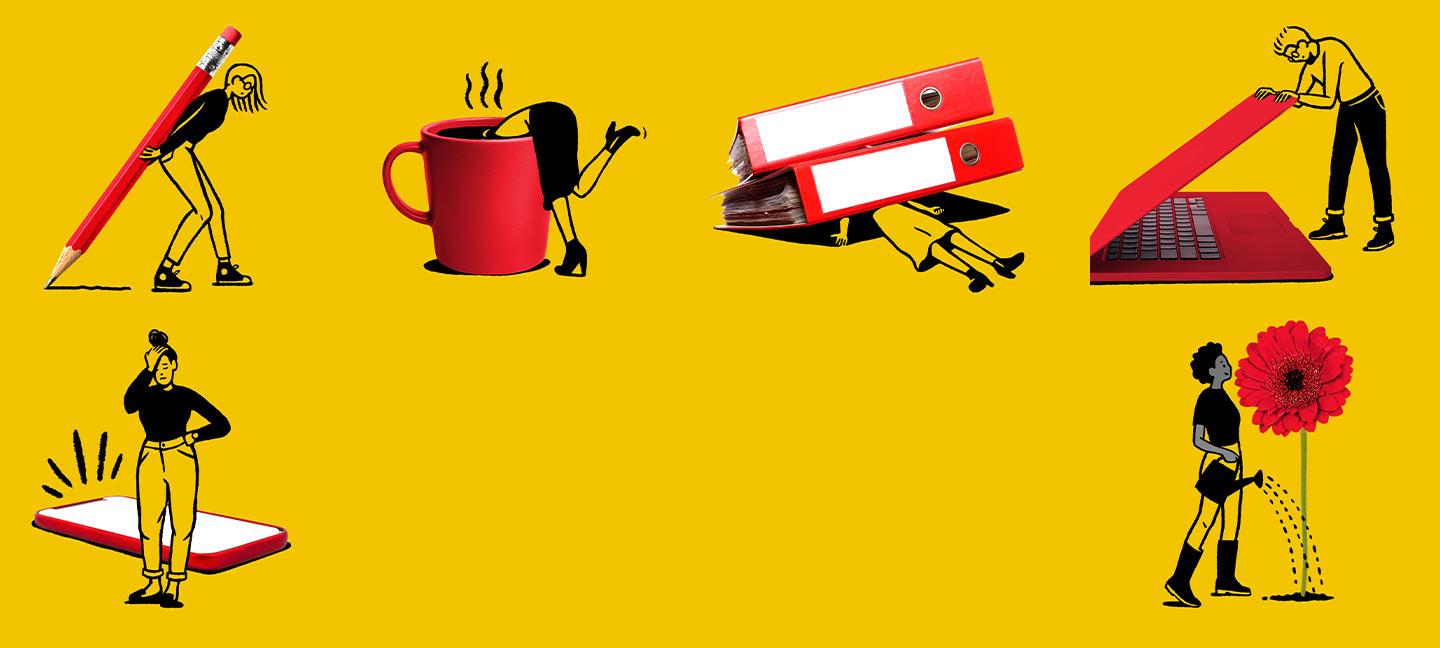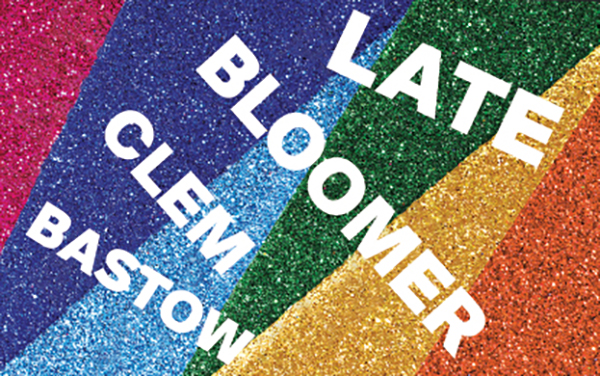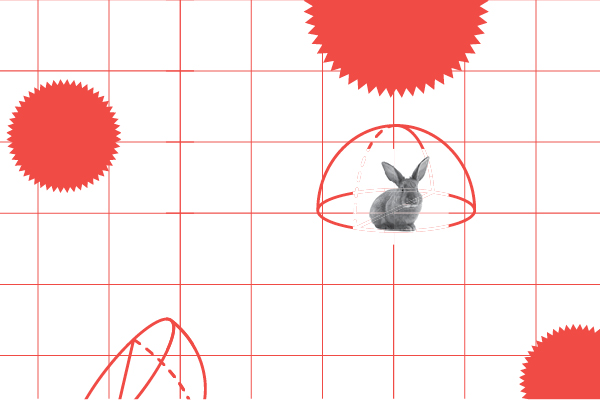Three tips on how to leave your job and not your identity
21 Mar 2022 | Lisa Leong and Monique Ross
This is an edited extract from This Working Life by Lisa Leong and Monique Ross published by Hardie Grant Books.

Essential and non-essential.
Deirdre, a classical music performer based in Paris, was placed in the latter category of work. You might reflect that they’re just words, but words matter, and this one penetrated her to the core.
But then a friend of Deirdre’s told her about a nurse whose work had become a hellscape. This nurse was having to make decisions she never thought she would have to make: about who gets a machine and who doesn’t, who lives and who dies.
‘The only thing, she said, that got her through was coming home each night and listening to Mozart symphonies,’ Deirdre says. It helped her see that ‘essential is not about “survive versus perish”. It’s the stuff that makes us thrive, that feeds us and gives us energy and meaning’.
The grief Deirdre felt was because she felt devalued: as a professional, and as a person. She felt like all the choices she had made in her life, to get to where she was, were being held up for judgement, and falling short of some invisible standard.
And perhaps this feeling of lesser than, of feeling not enough, will resonate with those who have experienced job loss or redundancy.
Our sense of self is so wrapped up in what we do for a living that when we leave a job, we can feel like our identity stays with it.
A crisis of the existential kind
There are myriad reasons why you may leave your job – and you are not always the one making the call.
You might be sacked or your position may be made redundant. You may choose to quit, to pursue a new direction, or focus your energy on other things, like raising kids. You may be forced to leave for reasons that aren’t necessarily your choice, like injury, mental health or to care for a loved one.
When you lose your job, often your first thoughts will turn towards money and the need to keep the financial stream flowing. This can be a very real and urgent hurdle, particularly if you have dependants.
But it’s not the one that comes up again and again when I talk to people about job loss and redundancy. What seems to hit hardest – and what we are going to focus on in this chapter – is the blow it can land on your identity. This is a storm that hits deep. It leaves you feeling completely unmoored.
This is because work is a major organising principle of our lives. It is where we meet our friends. It gives structure to our days. It gives meaning and purpose to our lives. It’s the anchor for our goals. It makes us feel useful.
So many of us define who we are by the work we do; we equate our identity with our résumé. We don’t have a strong enough sense of who we are when the On Air light switches off. So when we lose our job, we lose our way of navigating the world. We lose all of these things we maybe didn’t even realise were important to us.
Cue a major existential crisis.
This crisis can take hold even if you didn’t particularly like your old job, and even if you made the decision to leave.
The pandemic has led to a global trend that has been dubbed the Great Resignation: a mass, voluntary exodus from the workforce as professionals rethink their careers, work conditions and long-term goals. Monique was part of this trend, resigning at the end of 2020 with a new sense of perspective on what really mattered to her.
‘I was working really hard for things that weren’t essential to me at all. I was grinding it out to get more money to buy more things. The pandemic helped me realise that what really matters to me is a sense of space about my life; I don’t want to spend my days rushing from one thing to the next thing until I keel over.’
But just because leaving is the right thing to do, it doesn’t mean it isn’t hard.
After Monique left, she entered a period she describes as ‘the great in- between’. She didn’t feel like herself anymore, but she didn’t quite know why. ‘I felt a sense of loss because I was no longer able to identify myself by my work. I had felt like I had a strong sense of myself and that it didn’t revolve around my work, but I was way off,’ she says. ‘I think my ego took a bit of a hit, and I was also really worried how people would perceive me. People respected me as a journo, but what would they think when I introduced myself as a forest bathing guide?’
She talked this out with a friend who had just had a baby and realised they were both feeling similar things: a sense of grief for who they were, and an uncertainty about who they might become. They were both feeling a sense of being not enough, or being lesser than.
Those feelings surfaced again for Monique’s friend when she returned to the workforce. It can be challenging when you have that year-long (or more) gap in your CV, whether you’re returning to your old company or searching for a new job. You can feel like you have to ‘prove’ you’re still serious about your job, even though you might now be part-time and a parent. You can lose confidence or find you overcompensate at work.
I have also heard this from people who have faced redundancy. When they get a new job, they overwork, don’t push back on unreasonable requests or don’t properly log overtime, because they’re scared of being made redundant again. Other people might go the opposite way: putting in less effort at work because they feel a lack of control or agency over what might happen in the future.
So not only can leaving a job affect your sense of identity, but it can also fundamentally shape the way you work.
1: Trust the big picture, even when you can’t see it
Job loss is a struggle; there is no denying that. I’m not going to be one of those annoying people who scoots over to your side and tells you to just stay positive.
But I do believe that you will eventually find some meaning in your situation, even if it takes a while to emerge. Inside every struggle is a gift. You don’t have to go looking for it while you’re in the depths of despair, but let yourself trust, even a little, that it is out there.
Silvia Regos made a major transition in her career a few years ago, leaving her work at one of the Big Four consulting companies. Like Monique, she made the choice but still entered what she calls a ‘period of quiet uncertainty’.
‘Sometimes I call it the dark night of the soul, where you lose your previous identity,’ she says. ‘It is a very unsettling period that can spark quite deep emotions and anxiety.’1
Silvia found that after sitting in that space of difficult uncertainty for a few months, she started to feel a spark again. She felt curious about what might come next and was able to take stock of what she wanted to leave behind and what she wanted to take with her, creating a vision for her future. She moved into ‘a very exciting period of exploration’ and is now working in a job she loves, as a business growth adviser.
Her advice is to give yourself the space to work through what you want your future to look like, as much as you can. There is some privilege involved in being able to do this. If you’re financially stressed, you might have to get a new job ASAP to keep income coming in. But maybe while you’re doing what you need to do now, you can also think about what you want to do next.
For those of us with some kind of financial buffer or support, job loss can be seen as a chance to recalibrate. Think about everything you have learned about yourself so far in this book, and consider:
⊲ What do you want your next job to look like? (The flip side can be just as useful too: what don’t you want your next job to look like?)
⊲ What transferable skills do you have?
⊲ How might you pivot to something new, or reinvent your career?
⊲ What excites you about the next stage of your career?
2. Leave some space for the unimaginable
Don’t lose hope, because you never know what might happen.
When Janna Koretz, a clinical psychologist who specialises in the mental health challenges associated with high-pressure careers, came on to This Working Life, she told me a great story about a client who was in the start-up business and only had about two weeks’ worth of money left.
He’d had stacks of interviews with venture capitalists and investors, but they’d come to nothing: nobody was willing to fund his start-up for the next round. He was upset and talking the problem through with everyone he knew. He happened to tell his mailman about it, and his mailman just happened to deliver mail to an angel investor – who went on to fund the project!
‘These are the crazy things that happen in life. Sometimes really interesting things can come out of situations that feel excessively hard and impossible to navigate. So not to negate how difficult it is, but this could be a great opportunity for something kind of unusual and unexpected to happen that might actually be great,’ says Janna.
Allow some room in among all the fear for a little bit of wild hope.
Deirdre initially lost gigs when concerts were cancelled due to the pandemic, but was able to return to work part way through 2020. However, a month in, she injured her finger on her left hand and was unable to play. She had to cancel everything. ‘That’s when it really hit. Not only can the world kind of cancel your career for a while, but something could happen at any time that means from one moment to the next, you might not be doing what you’re doing,’ she says.
She was privileged enough to have a bit of time to weigh up her options; the French Government gave musicians a stipend so they could get paid through COVID even though they couldn’t perform. She had been thinking about taking time off to complete some form of further study, but this wasn’t what she had envisaged because she hadn’t been given a choice around the timing.
‘This kind of inner tantrum hit me. “This was not my choice!” I’d been thinking about taking a sabbatical for so long, and then suddenly a sabbatical arrived on my doorstep and I hated it.’
The impact of that lack of choice feels so relatable to me as I write during another lockdown. I have talked to many people who are stuck at home and going, ‘Yeah, I probably would have stayed at home all week anyway. But I would have stayed at home by choice.’
Deirdre had time to consider forms of further study, and there was a heightened sense of urgency to act because of her finger injury. She landed on the MBA.
‘At first it felt very much outcome-focused. I wanted to find a solution in case I couldn’t play the viola anymore, and this seemed like a logical way to formalise my tacit skills and get a salaried job,’ Deirdre reflects.
‘The MBA isn’t a contradiction to music. I’m really enjoying doing it, and at the same time I have no idea where it’s going, so it’s become process-focused, subject by subject. I don’t need to try to control the outcome – nothing ever really goes to plan in life anyway. I’ve realised that if I’m happy doing the process, the outcome will take care of itself.’
Deirdre has come to believe that we need a bit of chaos sometimes; that is where the fertile ground for growth is. You can see things from the edge that you can’t see from the safety of the centre.
There is some excitement in the uncertainty of what comes next.
3. Reach for the stars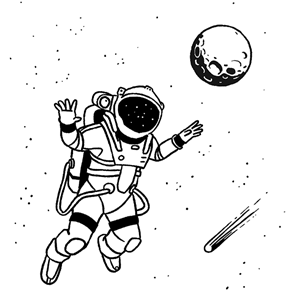
Sometimes a little push can be exactly what we need.
A decade ago, Kim Ellis was working as a research chemist for BHP Billiton when her position was made redundant. She was thirty-nine; she’d only been back at work for a few years after going on maternity leave.
She knew it was coming but that didn’t prepare her for the reality of it. She kept wondering if maybe there was something she could have done to prevent it, as if it was somehow in her control. Once she was able to let go of that idea, it was easier to face. ‘I remember thinking it was really personal. But it wasn’t. Redundancies never are,’ she says.
Her employer handled the redundancies pretty well, giving people three months of training on everything involved with finding a new role, from résumés to job searching. As part of that, Kim did an interview designed to draw out the type of role she wanted to do. Nothing felt inspiring to her. Finally, the interviewer asked: ‘If you could do any job at all in the world, what would you do?’
‘I laughed and I said, “I’d be a rocket scientist!”’ Kim recalls on This Working Life. It was a throwaway comment but when she said it out loud, it released something she had held inside for a long time. ‘I really was a closet space nerd.’
The conversation catalysed a major change for Kim, who ran full speed in the direction of her passion. She is now a space lawyer and scientist, and the founder of consultancy International Earth and Space Technology. She is also in training to become Australia’s first female astronaut, after being selected as a PoSSUM (Polar Suborbital Science in the Upper Mesosphere) Scientist-Astronaut candidate and global ambassador for 2021.
‘I would never have imagined the type of roles that I’ve been able to land and the amazing experiences that I’ve had. I’m so grateful for the redundancy because it completely changed my world for the better, even though it was really painful at the time.’
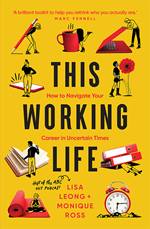
This Working Life by Lisa Leong and Monique Ross
©Hardie Grant Books, 2022Available now at your local bookstore and online.
